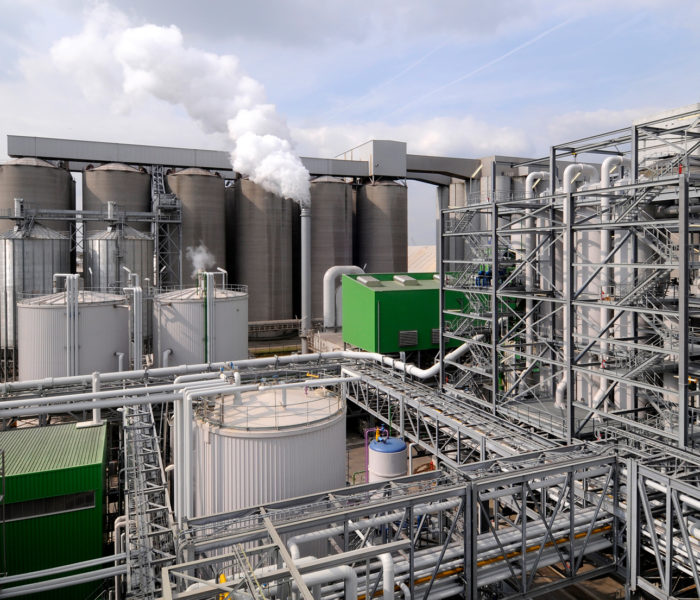Reliability through experience
Ethanol

Bioethanol production plants
De Smet Engineers & Contractors (DSEC) took an interest in bioethanol production projects as a logical development of its engineering and contracting activities, using its long experience in sugar engineering as a major asset. The company has invested in the construction of epc biodiesel plants.
Ethanol
industries
Our bioethanol production solutions
Ethanol production is one of the solutions that DSEC has developed, where we are implementing new distillation technologies consisting of thermal coupling with multiple effects, either by integrating thermo-ejectors or by mechanical vapour recompression.
DSEC ethanol production plants
Since then, DSEC has successfully built complete ethanol production plants using cereals, sugar beet and sugar cane, as well as cellulosic materials:
- Autonomous ethanol plant and biorefineries using starch-type raw materials (maize, wheat, manioc, etc.)
- By-product recovery units for starch-type biorefineries (wheat gluten, sugars, spent grains, energy, maize oil, etc.)
- Distilleries using sugar raw materials (sugar, molasses, etc.)
- Autonomous sugar cane ethanol plant with cogeneration
- Extra Neutral Alcohol (ENA) production unit, as well as technical, pharmaceutical or spirits alcohol, etc.
- Optimisation of process parameters in existing plants to improve viability, yields and cogeneration efficiency
- Implementation of technologies for the production of second-generation ethanol.
The processes involved in producing bioethanol at our plants
DSEC offers a global approach to ethanol production, with the aim of improving the economic viability and environmental footprint of the entire plant:
- CO2 scrubbing and recovery (for the soft drinks industry, dry ice production, etc.)
- Vinasse concentration
- Incineration of condensed molasses solubles (CMS)
- Aerobic and anaerobic treatment of wastewater
- Biogas production (methanisation – CNG)
DSEC handles all the facilities involved in bioethanol production, depending on the type of feedstock.
Our technology is also based on the use of an additional column to reduce the amount of wash water by increasing the amount of steam required.



